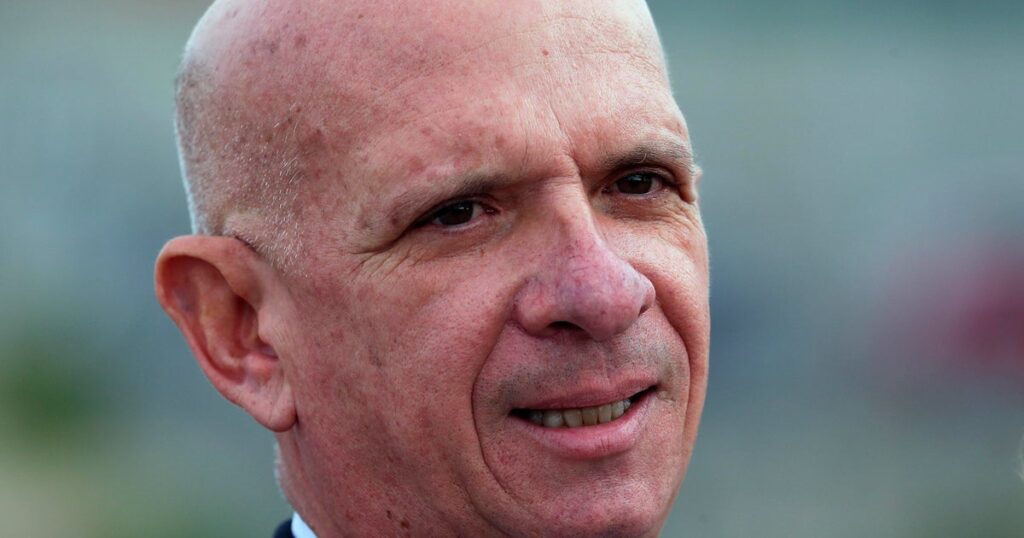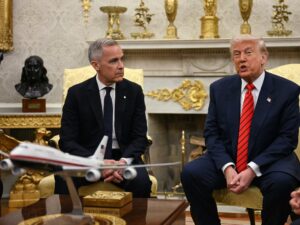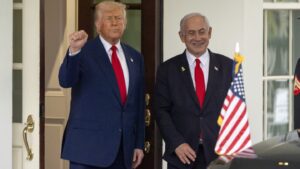
MIAMI — A former Venezuelan spymaster, once a close confidant of the late President Hugo Chávez, pleaded guilty Wednesday to drug trafficking charges, just days before his trial was set to commence in a Manhattan federal court.
Breaking: Carvajal’s Guilty Plea
Retired Maj. Gen. Hugo Carvajal, who was extradited from Spain in 2023 after over a decade evading U.S. law enforcement, admitted to all four criminal counts, including narco-terrorism. The indictment accused him of leading a cartel comprised of senior Venezuelan military officers aiming to “flood” the U.S. with cocaine, in collaboration with Colombian guerrillas.
Prosecutors believe federal sentencing guidelines call for Carvajal to serve a mandatory minimum of 50 years in prison.
Immediate Impact of the Plea
Nicknamed “El Pollo,” Carvajal was a trusted advisor to Chávez for over a decade. He later distanced himself from Chávez’s successor, Nicolás Maduro, and supported the U.S.-backed opposition. In a dramatic recording, Carvajal urged his former military colleagues to rebel amid mass protests against Maduro, but the anticipated uprising never occurred, leading to his flight to Spain.
Key Details Emerge
Carvajal’s guilty plea, without any promise of leniency, might be a strategic move to gain favor by cooperating with U.S. authorities against Venezuela, a nation with vast petroleum reserves. His supporters argue that he could provide valuable insights into the Venezuelan gang Tren de Aragua’s U.S. operations and the espionage activities of Maduro’s allies, including Cuba, Russia, China, and Iran.
“He’s no angel, he’s a very bad man,” said Gary Berntsen, a former CIA officer, urging the Justice Department to debrief Carvajal.
Background Context
Carvajal was captured in Madrid in 2021 after defying a Spanish extradition order. U.S. prosecutors alleged that in 2006, Carvajal coordinated the smuggling of approximately 5,600 kilograms (12,300 pounds) of cocaine from Venezuela to Mexico, receiving millions from traffickers.
The cocaine was sourced by the Revolutionary Armed Forces of Colombia, designated as a terrorist organization by the U.S., which sought refuge in Venezuela.
Expert Analysis
Carvajal’s attorney, Robert Feitel, expressed disappointment that prosecutors did not offer a plea deal or meet with his client. “He has information that is extraordinarily important to our national security,” Feitel stated.
“Carvajal exploited his position… to intentionally cause harm to the United States,” said DEA Acting Administrator Robert Murphy.
What Comes Next
As Carvajal awaits sentencing, his potential cooperation with U.S. authorities remains a point of interest. His knowledge could influence ongoing investigations into foreign interference and drug trafficking networks.
The case highlights the complex geopolitical dynamics involving Venezuela and its allies, with implications for regional stability and U.S. foreign policy.
U.S. Attorney Jay Clayton emphasized the commitment to holding accountable foreign officials who abuse their power.
The unfolding situation underscores the challenges in combating international drug trafficking and the role of high-ranking officials in such operations. As the story develops, the international community watches closely for any shifts in diplomatic relations or policy adjustments.




